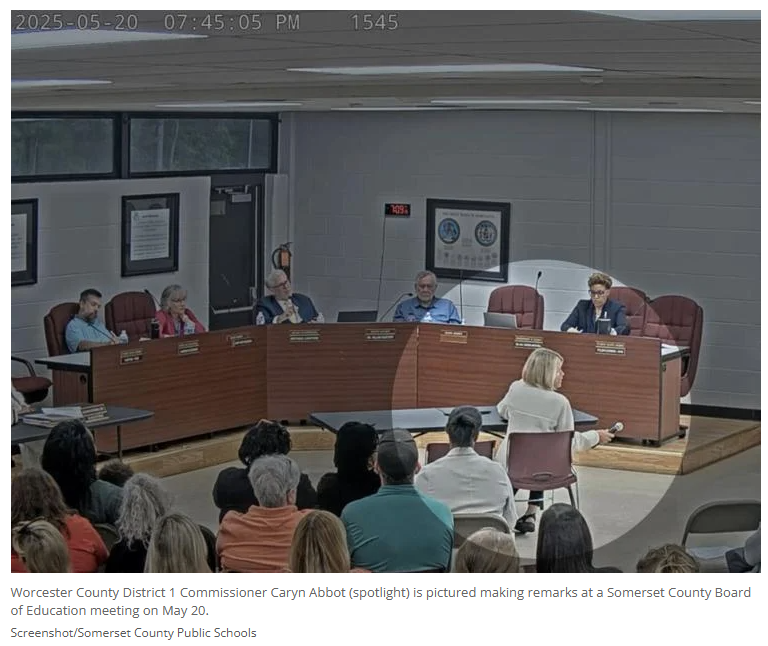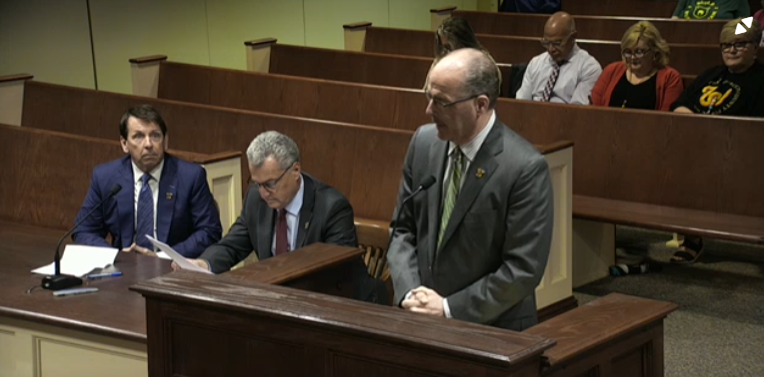
When Graduation Dress Codes Clash With Students’ Cultural Expression
Graduation dress codes are making headlines as students in several states challenge restrictions that bar them from wearing items of personal, religious, and cultural significance as they accept their diplomas.
Students argue that wearing items like eagle feathers given to them as part of Native American traditions, or stoles bearing flags from their immigrant families’ country of origin, allows them to celebrate their communities’ role in their personal milestones.
But school and district administrators say dress codes help preserve the formality of graduation ceremonies.
The challenges have led to high-profile standoffs, lawsuits, and protests. In some cases, students have opted out of graduation after losing arguments about attire. Some have been denied the opportunity to walk when they arrived at the events, unaware that their dress violated rules.
“Graduation can hardly be a celebratory occasion when students are told to put aside a part of themselves and hide it to satisfy the ideals of others,” Sydney Williams, a high school senior in Nevada and a member of the Walker River Paiute Tribe, told Nevada lawmakers last month.
Williams spoke in support of a new law that allows graduating students to wear items of religious and cultural significance, which eventually became law, after her cousin was denied a chance to wear a beaded cap to his high school graduation, though his older brother was allowed to do so.
Lawmakers in at least five states passed bills this year protecting the rights of Native American students, or students more broadly, to wear culturally significant items to graduations, joining a growing number of states that do so. Sponsors of those bills said they were concerned that inconsistent policies among districts and schools led some students to feel deprived of recognizing their full identity at an important life moment.
Utah joined Nevada in passing a broad bill, but the new law allows schools to restrict graduation apparel if it could cause a distraction or a disturbance. Those testifying in support of the bills included advocates for Polynesian American students who wanted to wear leis to recognize the support of their communities.
Colorado, Minnesota, and Oklahoma passed similar bills related specifically to Native American regalia after students there complained their schools had not allowed them to wear items like feathers and pendants. Oklahoma’s bill became law after legislators voted on May 25 to override a veto from Republican Gov. Kevin Stitt, who said decisions about graduation dress codes should be left to school districts.
“Should this bill become law, the proverbial Pandora’s box will be opened for other groups to go over the heads of local superintendents and demand special favor to wear whatever they please at a formal ceremony,” Stitt wrote in a veto message.
Respecting traditions, cultures, and communities
Researchers say recognizing students’ cultures can help promote sense of belonging, which is a key factor for motivation.
Rules for graduation ceremonies can present a challenge for administrators, who argue that dress codes help preserve formality and tradition. But students argue their cultural and personal histories are an important part of those celebrations.
Oklahoma graduate Lena’ Black, a member of the Otoe-Missouria Tribe, sued her former Broken Arrow, Okla., school district in May, claiming administrators violated her rights of free speech and religious expression when they would not let her wear an eagle feather during her graduation ceremony. A spokesperson for the school system told CNN that Black had not followed the process the district used to approve such items.
“That [feather] represents the prayers of her Otoe-Missouria people for her and prayers for her protection,” Black’s attorney, Wilson Pipestem, told Education Week. “She’s worn that specific eagle plume for many years, and as an expression of her religious and cultural beliefs.”
Such disputes can send the wrong message to Native American communities, which have had a historically strained relationship with schools, he said.
Students from other cultural backgrounds have also filed lawsuits. A federal judge ruled on May 27 that a high school in Parachute, Colo., could bar senior Naomi Peña Villasano from wearing a sash bearing the flags of Mexico and the United States to her graduation. She wore the sash anyway as an act of protest, partially covering it with another piece of approved regalia as she walked across the stage, she told the Post Independent newspaper.
Rules send a message, students say
Disputes also extend beyond cultural and religious items.
In Oxford, Mich., district administrators barred students from wearing orange cords in honor of their experience surviving a 2021 school shooting there, arguing the move could “erode” traditions. They offered a cord in the school’s blue and gold colors as an alternative to orange—a color associated with advocacy for new gun laws.
A transgender girl skipped her high school graduation in Gulfport, Miss., on May 20 after a federal court ruled the district could bar her from wearing a skirt under her robe. Administrators had directed her to follow the boys’ dress code, which called for black pants.
Parents in Escambia County, Fla., told local news station WEAR that 30 students weren’t allowed to walk at a graduation there last week after being told their clothing choices, including t-shirts and sandals, violated the event’s dress code.
“It’s unfortunate but I don’t believe [the dress code] is too rigorous of a request,” school board member Bill Slayton told the station. “It’s a very dignified occasion. We just went to eight graduations and the students I saw come across the stage seemed to have been adhering to the request of their individual schools.”
Philadelphia educator Matthew Kay said schools should think carefully about the message they send by setting such strict rules.
“I wonder what that says about the school’s values,” said Kay, who leads professional development and has written a book for teachers about discussing race in the classroom. “Graduation isn’t supposed to be about the school. It’s supposed to be about the kids.”
When Kay graduated from college, he wore his grandfather’s Purple Heart medal, earned in World War II, as he crossed the stage. The choice honored his grandfather, who died when he was young, and it also celebrated the broader family who helped him reach his goals, he said.
“If you’re a parent and you’re there to watch your kid, I can’t imagine caring at all about what some other kid is wearing,” Kay said.
Dig Deeper With Our Longreads
Newsletter Sign up to get our best longform features, investigations, and thought-provoking essays, in your inbox every Sunday.
The MEN was founded by John Huber in the fall of 2020. It was founded to provide a platform for expert opinion and commentary on current issues that directly or indirectly affect education. All opinions are valued and accepted providing they are expressed in a professional manner. The Maryland Education Network consists of Blogs, Videos, and other interaction among the K-12 community.







